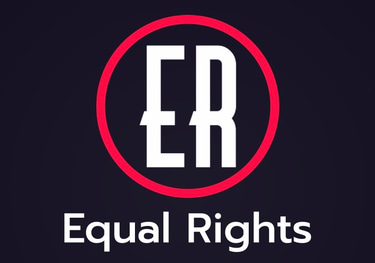The Role of Allyship in Promoting Equal Rights
Kylo B
4/19/2024
The Role of Allyship in Promoting Equal Rights
Allyship is a crucial concept in the pursuit of equal rights and social justice.
Allies are individuals who actively support and advocate for marginalized or oppressed groups, leveraging their privilege and influence to challenge systemic inequality.
In this article, we explore the meaning of allyship, its importance in promoting equal rights, and practical strategies for effective allyship.
Understanding Allyship
Allyship goes beyond passive support or sympathy. It involves taking intentional actions to dismantle oppression and promote equality.
Allies recognize their privilege (e.g., based on race, gender, sexual orientation, or socioeconomic status) and use it to amplify the voices of marginalized communities and advocate for systemic change.
Key Principles of Allyship
Listening & Learning: Allies prioritize listening to and learning from marginalized individuals' experiences and perspectives without centering themselves in the conversation.
Amplifying Voices: Allies use their platforms and influence to amplify the voices of marginalized groups and advocate for their inclusion and representation.
Taking Action: Allyship involves taking concrete actions to challenge discrimination, promote diversity, and advocate for policies that advance equality.
Commitment to Growth: Allies commit to ongoing self-reflection, education, and growth to deepen their understanding of privilege and oppression.
The Importance of Allyship in Promoting Equal Rights
Building Solidarity: Allyship fosters solidarity and collaboration across diverse communities, strengthening collective efforts to dismantle systemic discrimination.
Creating Safe Spaces: Allies help create inclusive and safe spaces where marginalized individuals feel valued, respected, and empowered to express themselves.
Amplifying Impact: By leveraging their privilege and networks, allies can amplify the impact of advocacy initiatives and promote broader societal change.
Challenging Injustice: Allies play a critical role in challenging discriminatory practices, policies, and attitudes that perpetuate inequality.
Practical Strategies for Effective Allyship
Educate Yourself: Take the initiative to educate yourself about issues affecting marginalized communities through books, articles, documentaries, and conversations with diverse individuals.
Listen & Validate: Practice active listening and validate the experiences and perspectives of marginalized individuals without judgment or defensiveness.
Use Privilege Responsibly: Use your privilege to create opportunities for marginalized individuals, amplify their voices, and challenge bias and discrimination in your spheres of influence.
Speak Out: Speak up against injustice, discrimination, and microaggressions when you witness them, even if it feels uncomfortable.
Support Marginalized Leaders: Elevate and support marginalized leaders and organizations by attending events, donating resources, and advocating for their inclusion.
Allyship is an essential component of the fight for equal rights and social justice.
By practicing active listening, amplifying marginalized voices, taking concrete actions, and using privilege responsibly, allies can contribute to creating a more equitable and inclusive society.
Allyship requires ongoing commitment, self-reflection, and humility to challenge systemic inequalities and promote a future where everyone has the opportunity to thrive and be treated with dignity and respect.
Together, let us embrace allyship as a powerful force for positive change and collective liberation
